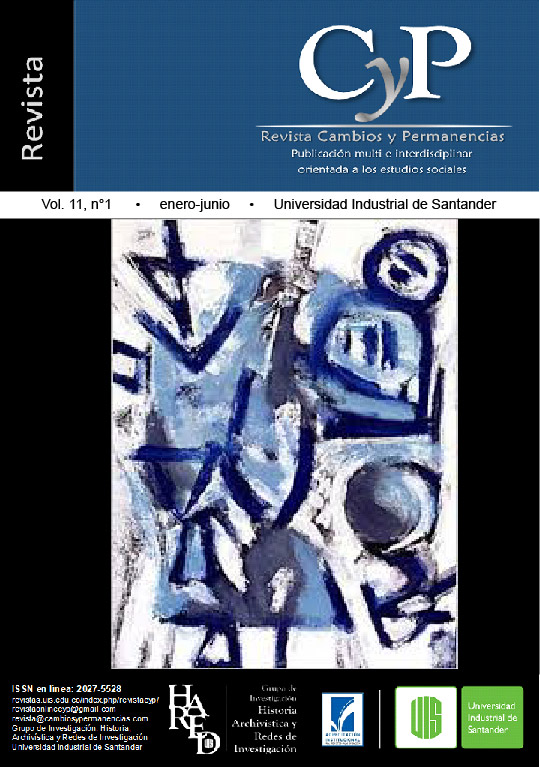Political humour and the strengthening of New-Pentecostalism in Costa Rica: analysis of the 2017-2018 electoral campaign
Published 2020-06-30
Keywords
- Costa Rica,
- Presidential elections,
- Política Humour,
- New-Pentecostal
How to Cite
Abstract
This paper analyzed the electoral dispute developed in Costa Rica between 2017-2018, fundamentally the image of two participating political parties: Acción Ciudadana and Restauración Nacional. The objective was to determine the most relevant factors that stimulated political discussion and how digital cartoons and memes portrayed the electoral campaign and the candidates for the presidency. The electoral campaign was of great relevance when new political forces like the Neopentecostals participated, which received criticism during this period. In that matter, the transformation of the Costa Rican political sphere and the rise of new groups to national politics were reflected. The methodology was based on the application of semi-structured interviews to ten Costa Rican citizens and on the analysis of graphic humor of a political nature. In the analysis of cartoons and "memes" were highlighted elements of the publications, symbols that displayed the position in favor or against the presidential candidates, in addition are exposed the context in which they appear and what were their objects of mockery. For this, two digital cartoons were selected, from the CRhoy newspaper, published prior to the first and second round of the elections and, one of the most prominent memes during the electoral contest.
Downloads
References
Centro de Investigación en Comunicación, CICOM, (2015). Costa Rica: coyuntura electoral y medios de comunicación. San José, Costa Rica: CICOM. Recuperado de http://proledi.ucr.ac.cr/wp-content/uploads/2018/10/Costa-Rica-Coyuntura-electoral-y-medios-de-comunicacio%CC%81n.-Elecciones-2014.pdf
CR Hoy, (2018, 1 de abril). Memes: Ganó la democracia...y el humor. CR Hoy. Recuperado de https://www.crhoy.com/nacionales/memes-gano-la-democracia-y-el-humor/
Dary F. C. (S. F.). Neopentecostalismo, familia y nuevos espacios de intercambio de bienes religiosos. Ciudad de Guatemala, Guatemala: FLACSO.
Holland, C. (2011). El Movimiento Protestante en Costa Rica. Costa Rica: PROLADES. Recuperado de http://www.prolades.com/historiografia/6-Costa-Rica/EL%20MOVIMIENTO%20PROTESTANTE%20EN%20COSTA%20RICA.pdf
Mora, J. (2018). Entrevista: Vladimir de la Cruz de Lemos. El liderazgo se improvisa en estos partidos políticos de hoy. Semanario Universidad. 14-15. Recuperado de https://mail.google.com/mail/u/0/#search/monicaulloag%40gmail.com/FMfcgxvzLrKflhcFQMbJlmmljJPqZHXx?projector=1&messagePartId=0.1
Murillo, A. (2018). Fabricio Alvarado, candidato presidencial opositor en Costa Rica: Los homosexuales pueden estar tranquilos. Semanario Universidad. 4-5. Recuperado de https://mail.google.com/mail/u/0/#search/monicaulloag%40gmail.com/FMfcgxvzLrKflhcFQMbJlmmljJPqZHXx?projector=1&messagePartId=0.1
PlayGround Community, “Ramashenka talamasola”, (S. F.) El delirante “idioma inventado” en pleno paroxismo religioso que las redes han convertido en meme. Recuperado de https://www.playgroundmag.net/comunidad/ramashenka-talamasola-meme-idioma-inventado-sermon-trance-religioso_27651614.html
Programa de Gobierno PAC, (2018). Recuperado de https://pac.cr/wp-content/uploads/2017/10/Creer-y-crear-la-Costa-Rica-del-siglo-XXI-interactivo-1.pdf
Programa Estado de la Cuestión (2017). Estado de la Nación. San José, Costa Rica: PEN. Recuperado de https://estadonacion.or.cr/2017/assets/en-23-2017-book-low.pdf
Vega, Á. (2005). Crisis política y bipartidismo en Costa Rica, Apuntes sobre Hechos Recientes. Revista ABRA, 25(34), 119-140. Recuperado de https://www.revistas.una.ac.cr/index.php/abra/article/view/4198
Entrevistas
Entrevista aplicada a: Ana Elena Castillo, noviembre 2018.
Entrevista aplicada a: anónima, noviembre 2018.
Entrevista aplicada a: Ashley Vindas, noviembre 2018.
Entrevista aplicada a: Gerardo Centeno, noviembre 2018.
Entrevista aplicada a: Joselyn Espinoza, noviembre 2018.
Entrevista aplicada a: Katia Alvárez, noviembre 2018.
Entrevista aplicada a: Manuel Araya, noviembre 2018.
Entrevista aplicada a: Melissa Sánchez, noviembre 2018.
Entrevista aplicada a: Valeria Picado, noviembre 2018.

